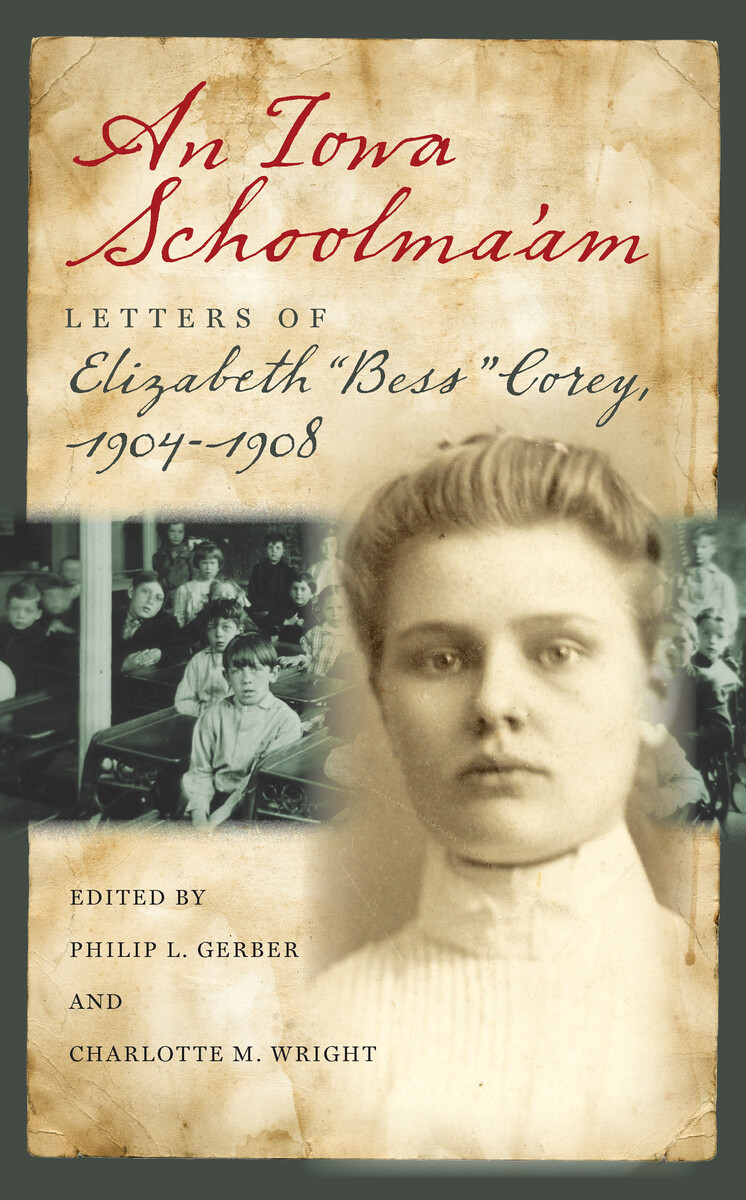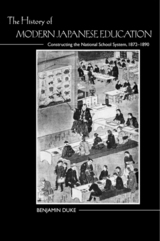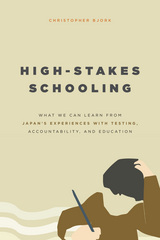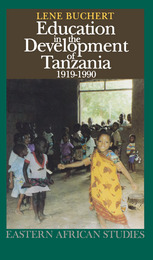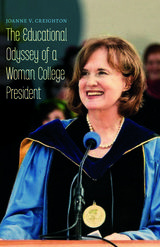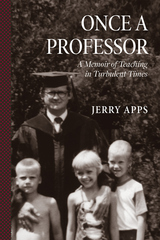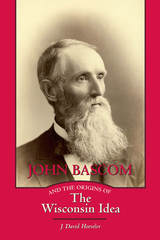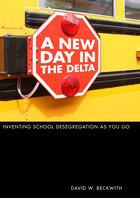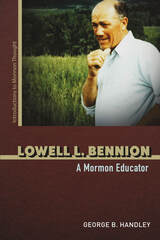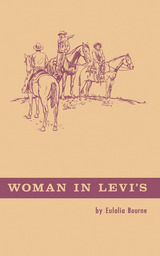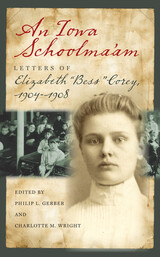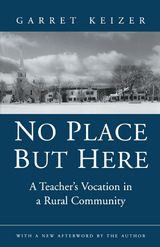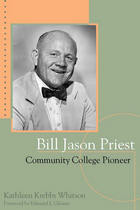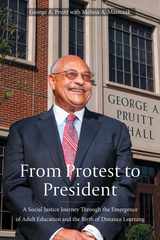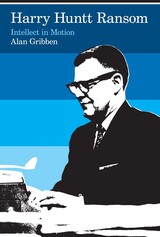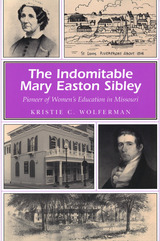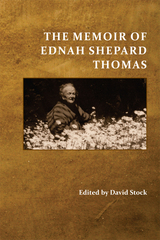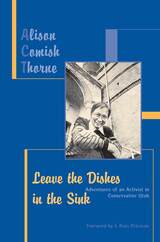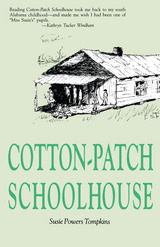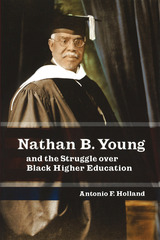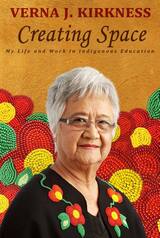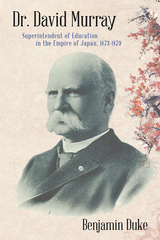An Iowa Schoolma’am: Letters of Elizabeth “Bess” Corey, 1904–1908
University of Iowa Press, 2011
Paper: 978-1-58729-960-5 | eISBN: 978-1-58729-961-2
Library of Congress Classification LA2317.C63417A4 2011
Dewey Decimal Classification 371.10092
Paper: 978-1-58729-960-5 | eISBN: 978-1-58729-961-2
Library of Congress Classification LA2317.C63417A4 2011
Dewey Decimal Classification 371.10092
ABOUT THIS BOOK | AUTHOR BIOGRAPHY | REVIEWS | TOC | REQUEST ACCESSIBLE FILE
ABOUT THIS BOOK
Readers everywhere fell for Elizabeth Corey, the irrepressible, independent, and fearless Bachelor Bess, whose letters home to Iowa gave us a firsthand account of her adventures on a South Dakota homestead from 1909 to 1919. Now, through the letters she wrote home between 1904 and 1908, readers can make the acquaintance of a younger Bess facing the realities of life in an Iowa country school system with energy, enthusiasm, and ambition.
Sixteen-year-old Bess wrote her early letters when she was away from the family farm, trying to complete the ninth grade so she could become a teacher. That schooling was cut short in 1905, when her father died and she returned home to help her mother. Later that year, she received a provisional certificate allowing her to teach, which she did from 1905 to 1909 in a succession of rural schools across Shelby and Cass counties in Iowa. Initially a reluctant teacher, she had an infinite capacity for productive work that propelled her toward success in the classroom. A determinedly lighthearted attitude toward life, a talent for making congenial friends and for making herself at home as she boarded with one family after another, a relentless devotion to her own family, and a drive to communicate all combine to animate her letters home.
Always colorful and colloquial, unusually detailed and frank, Bess’s letters are authentic documents of a discrete American time and place. Full of puns, hyperbole, drama, and above all else honesty and authenticity, the eighty-three letters describe barefooted pupils, cantankerous and cooperative parents and school board members, classroom activities, and school picnics against a frugal background of early twentieth-century chores, social occasions, party lines for telephones, chautauquas, church suppers and revivals, new ribbons for second-hand clothes, and buggy and train rides—all seen through the eyes of this talented teenage farm girl not much older than some of her students.
Of notable value is the light Bess casts upon the teaching profession as it was practiced in isolated midwestern areas at the moment when our nation determined that, come what may, every American child was going to have access to a basic grammar-school education. Beyond the pleasure of listening to a straight-talker who pulls no punches, one who expects to receive “some of the praise most of the work and all of the cussing” in return for her efforts, Bess’s letters create a veritable concordance of teaching in a one-room rural schoolhouse, a chapter of daily American life all but lost.
See other books on: Corey, Elizabeth | Iowa | Rural schools | Teachers | Theobald, Paul
See other titles from University of Iowa Press
